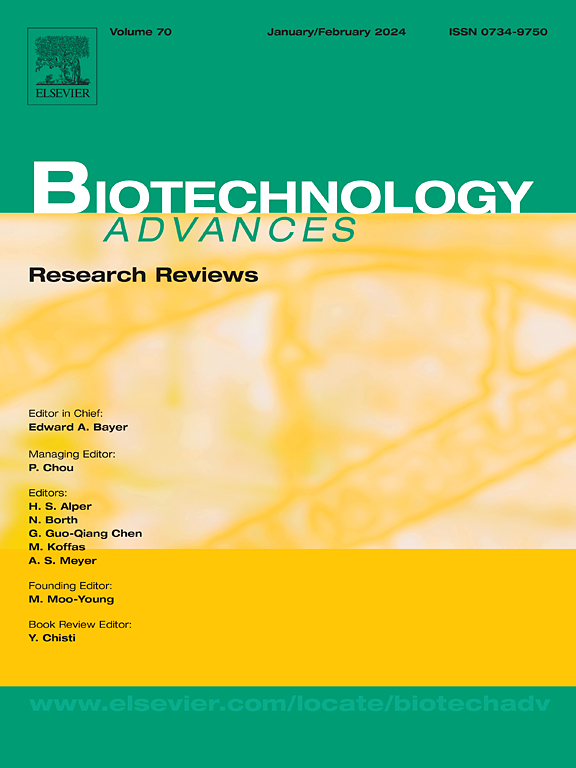Engineering microbial carbon metabolism for sustainable resource utilization
IF 12.5
1区 工程技术
Q1 BIOTECHNOLOGY & APPLIED MICROBIOLOGY
引用次数: 0
Abstract
Concerns over the depletion of fossil resources prompt us to consider the development of green and energy-saving resources. One alternative to fossil fuels is the microbial biosynthesis of chemicals using renewable carbon sources through metabolic engineering. In this review, we provide a broad and high-level overview of various research efforts to address the challenges of utilizing sustainable carbon sources, including glucose, lignocellulose, and one‑carbon (C1) compounds, through synthetic biology. We emphasize these endeavors can accelerate the development of microbial industrial application. Additionally, we discuss the prospects of using multi-omics sequencing, machine learning, and artificial intelligence to guide strain engineering for improving the utilization of sustainable carbon sources and prospects for reducing their costs.
工程微生物碳代谢可持续资源利用
对化石资源枯竭的担忧促使我们考虑开发绿色节能资源。化石燃料的一种替代品是微生物通过代谢工程利用可再生碳源合成化学物质。在这篇综述中,我们提供了广泛和高层次的各种研究工作,以解决利用可持续碳源的挑战,包括葡萄糖,木质纤维素和一碳(C1)化合物,通过合成生物学。我们强调这些努力可以加速微生物工业应用的发展。此外,我们还讨论了利用多组学测序、机器学习和人工智能来指导菌株工程以提高可持续碳源的利用率和降低其成本的前景。
本文章由计算机程序翻译,如有差异,请以英文原文为准。
求助全文
约1分钟内获得全文
求助全文
来源期刊

Biotechnology advances
工程技术-生物工程与应用微生物
CiteScore
25.50
自引率
2.50%
发文量
167
审稿时长
37 days
期刊介绍:
Biotechnology Advances is a comprehensive review journal that covers all aspects of the multidisciplinary field of biotechnology. The journal focuses on biotechnology principles and their applications in various industries, agriculture, medicine, environmental concerns, and regulatory issues. It publishes authoritative articles that highlight current developments and future trends in the field of biotechnology. The journal invites submissions of manuscripts that are relevant and appropriate. It targets a wide audience, including scientists, engineers, students, instructors, researchers, practitioners, managers, governments, and other stakeholders in the field. Additionally, special issues are published based on selected presentations from recent relevant conferences in collaboration with the organizations hosting those conferences.
 求助内容:
求助内容: 应助结果提醒方式:
应助结果提醒方式:


